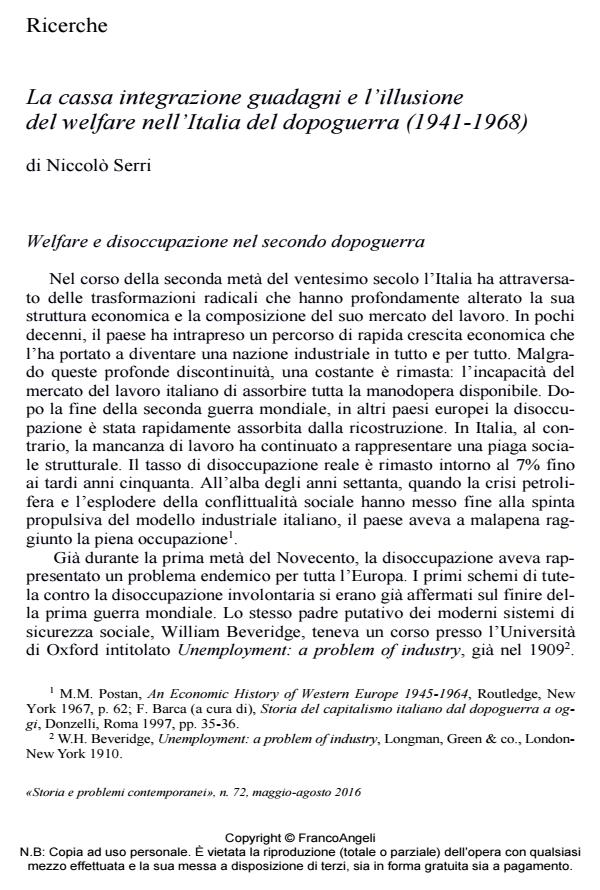The earnings integration fund and the illusion of welfare in postwar Italy, 1941-1968
Journal title STORIA E PROBLEMI CONTEMPORANEI
Author/s Niccolò Serri
Publishing Year 2017 Issue 2016/72
Language Italian Pages 20 P. 119-138 File size 270 KB
DOI 10.3280/SPC2016-072008
DOI is like a bar code for intellectual property: to have more infomation
click here
Below, you can see the article first page
If you want to buy this article in PDF format, you can do it, following the instructions to buy download credits

FrancoAngeli is member of Publishers International Linking Association, Inc (PILA), a not-for-profit association which run the CrossRef service enabling links to and from online scholarly content.
The history of postwar Italy has been characterized by the extreme weakness of social policies against joblessness. Rather than investing in standard unemployment insurance, the country’s welfare system overly relied on the earnings integration fund, an industrial policy instrument that was adapted to tackle structural employment problems. The paper sheds light on this anomaly, tracking the history of fund from its origins in 1941 to the reform of 1968, which introduced the new special management and sanctioned the permanent transformation of the institution in an unemployment policy device
Niccolò Serri, La cassa integrazione guadagni e l’illusione del welfare nell’Italia del dopoguerra (1941-1968) in "STORIA E PROBLEMI CONTEMPORANEI" 72/2016, pp 119-138, DOI: 10.3280/SPC2016-072008